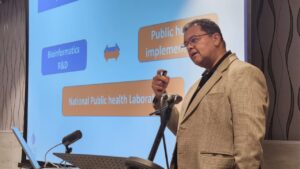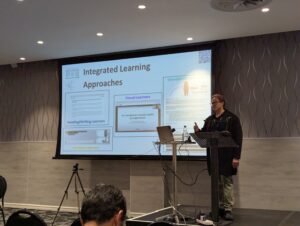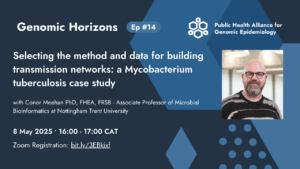Marking this year’s Mandela Day, PHA4GE hosted 20 young learners from Heideveld, hoping to inspire them to become tomorrow’s scientists.
The COVID-19 pandemic and the upcoming rollout of coding and robotics curricula at South African schools served as the backdrop for a visit by a group of young learners from Heideveld to the University of the Western Cape (UWC) on 25 July 2024.
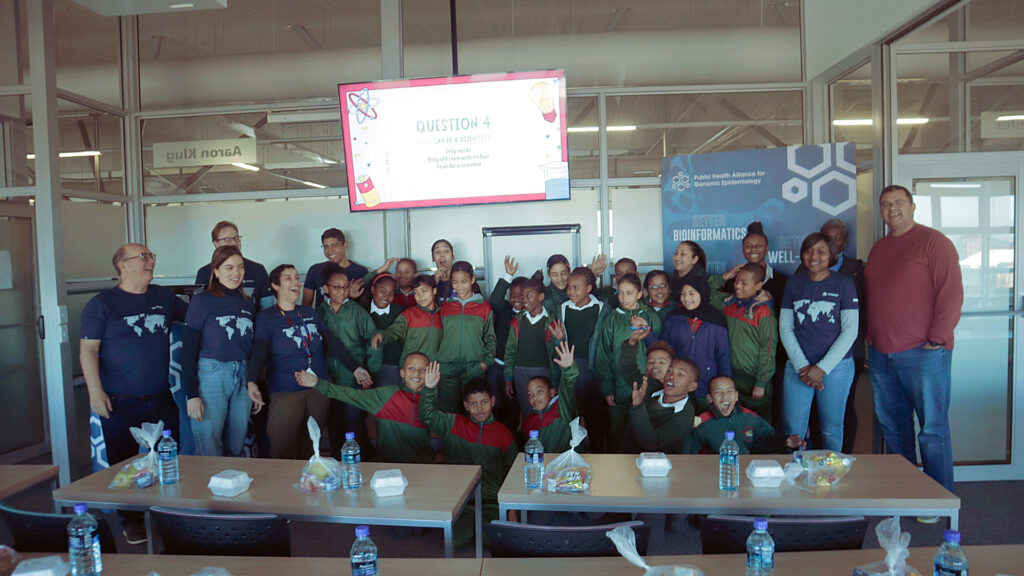
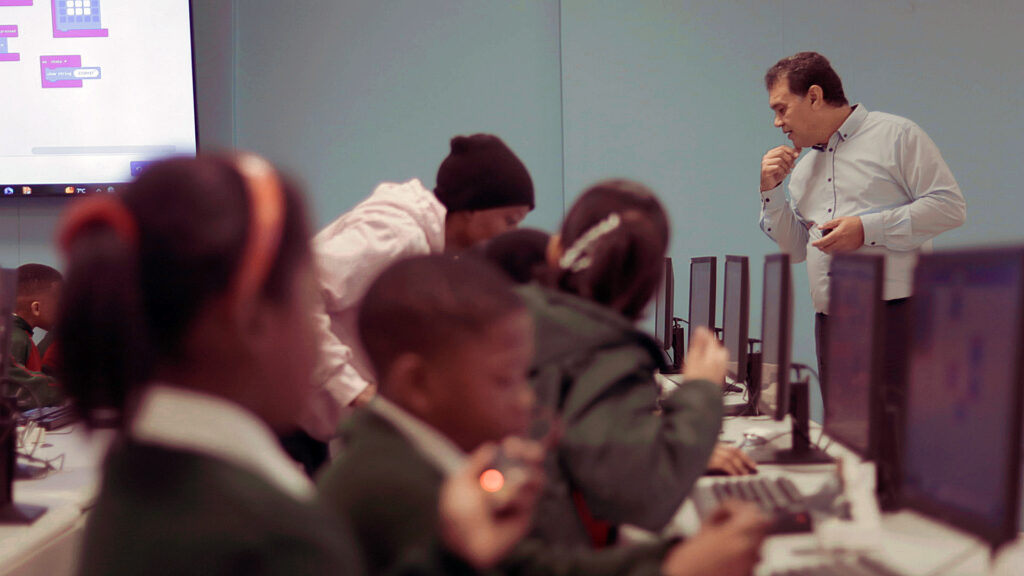
The first stop for the youngsters, all grade 5 learners from the community’s Woodlands Primary, was a hands-on introduction to coding and robotics at UWC’s Education Faculty. Here, Dr Tony Williams from the Richard van der Ross Resource Centre and members of UWC’s Robotics club guided the learners through some coding fundamentals using a palm-sized, bank-card-shaped codeable device known as the micro:bit. Developed in the UK but now popular around the world, micro:bit is one of many tools being deployed to teach the principles of coding to school children. The devices have been taken up in greater numbers alongside the Department of Basic Education’s (DBE) rollout of coding and robotics curricula – along with other tech-focused curricula – at schools around the country, with full-scale implementation scheduled for 2025.
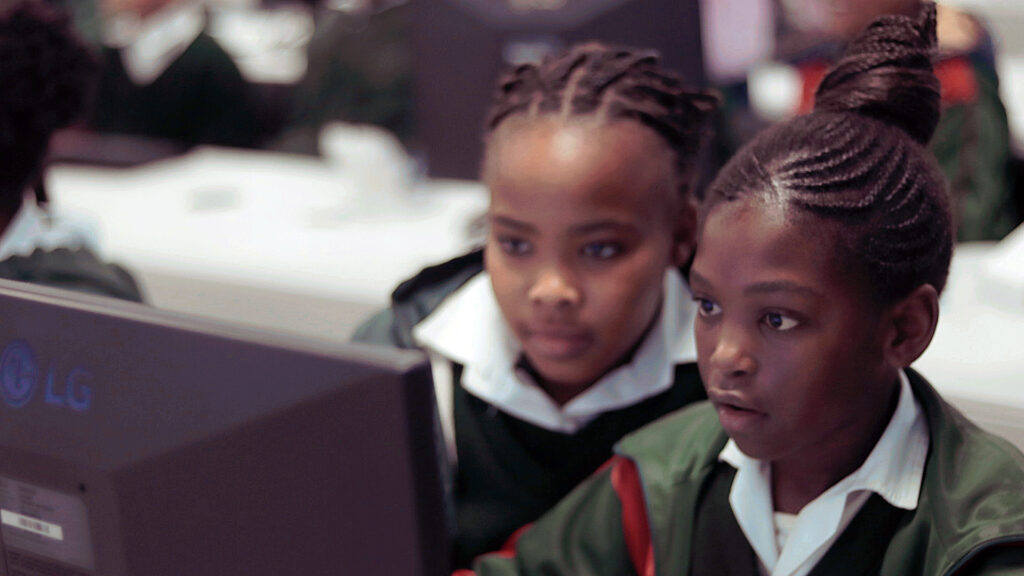
After programming the micro:bit, the learners moved to the offices of its hosts for the day, the Public Health Alliance for Genomic Epidemiology (PHA4GE), based at the South African National Bioinformatics Institute (SANBI). PHA4GE is an international network of scientists dedicated to the development of open-source bioinformatics tools, with collaborators in more than 70 countries. The Alliance’s Secretariat operates from SANBI.
At the SANBI offices, PHA4GE scientific lead Tracey Calvert-Joshua and other PHA4GE staff and students walked the learners through some of the fundamentals of diseases, and how they’re combatted. Calvert-Joshua introduced the learners – with the aid of some video materials – to concepts such as pathogens and the human immune system, and to the production of medicines. While these are sometimes hard-to-grasp subjects, made all the more so when they are not taught at school, learners are often more informed about these topics than assumed, says Calvert-Joshua. “I felt that we shouldn’t really underestimate kids, and that we could guide them through these concepts and ideas.”
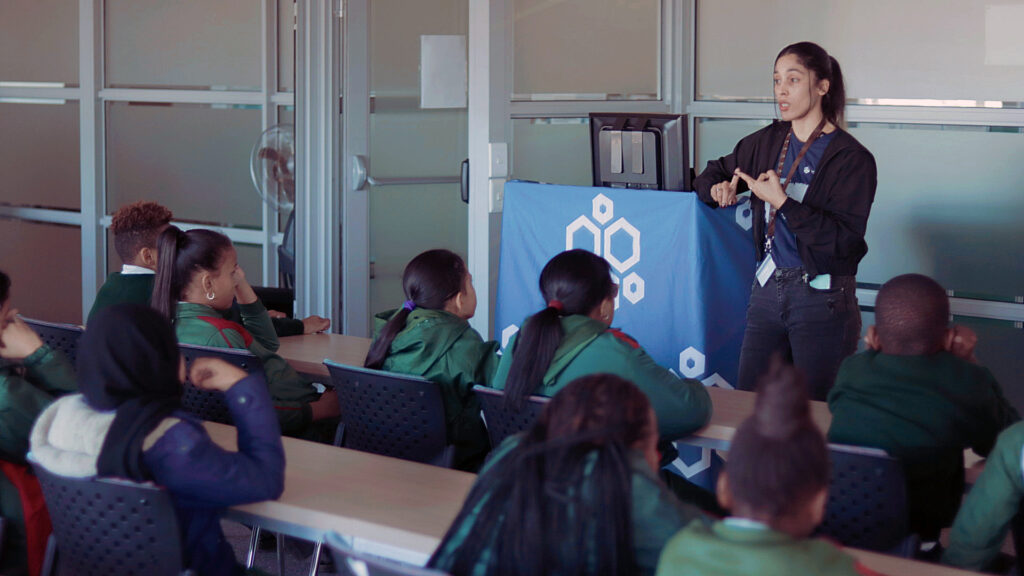
In addition to its links to Mandela Day, the visit by the young learners formed part of PHA4GE’s ‘Youth 4 Science’ initiative, which looks to teach young people about possible career pathways in science and public health, regardless of their backgrounds. In particular, the initiative aims to excite learners about the career opportunities in science, all the more critical as interest in these subjects have waned at schools. “We wanted to show them that science can be fun while highlighting the important roles scientists have in today’s world,” says Rangarirai Matima, communications lead with PHA4GE.
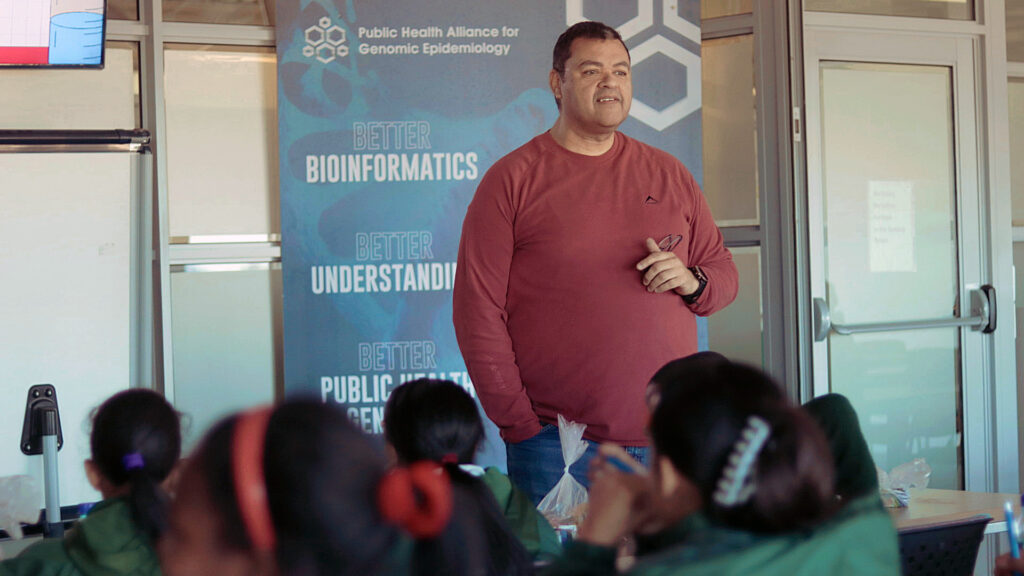
The visit was arranged by Prof. Alan Christoffels, PHA4GE’s Secretariat and UWC Institutional Advancement PR and Events Unit, in collaboration with Great Commission United (GCU), a not-for-profit organisation operating in Heideveld. The PHA4GE visit slots in well with several programmes that the GCU runs in the community, particularly those that aim to expand the horizons of children and youth, explains Natalie Abrahams, a volunteer working with GCU. “Learners would now understand the value of actually working hard at school, and also at a young age being able to choose their subjects properly and know in which fields they would want to work in one day,” she says.
In keeping with the GCU’s feeding initiative Mother City Kitchen and their ambition to feed not just minds but also bodies, PHA4GE provided their young visitors with a nutritious lunch, including snacks.

